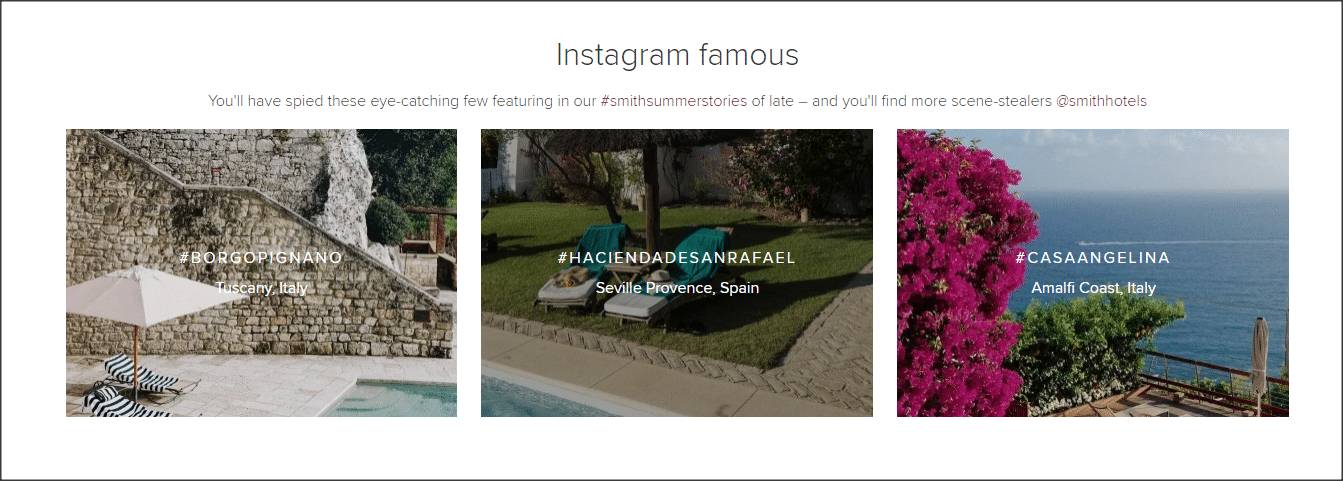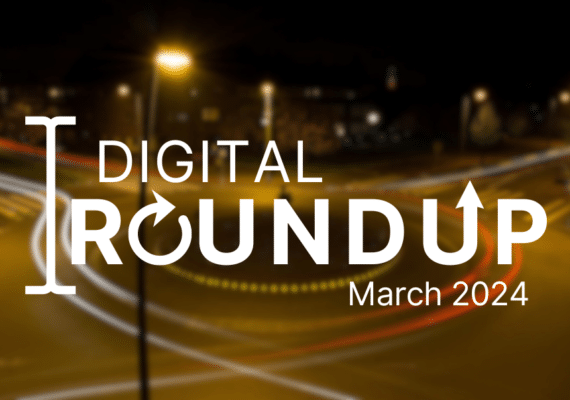Social media marketing has had a dramatic impact on the tourism industry over the last decade.
This undoubtedly will continue through the next with your customers continuing to research their future holiday plans, check out the latest reviews and of course upload photos of their holiday or day out for all their friends to see.
But can social media really affect your tourism business’ bottom line?
The simple answer is a big yes; social media within the tourism industry impacts on your customer acquisition, customer retention and overall brand reputation.
The tourism industry is well matched to social media; like tourism, social media exists to bring people together and share new experiences.
Travel is one of the most shared topics on Facebook, Twitter and Instagram (Uhuru Network, 2018). Tourists are increasingly going online to get reviews about hotels, destinations, travel deals and many other aspects before they take a travel decision.
Sites like TripAdvisor, which was founded in back in 2000 are today’s trusted ‘go to’ companies for people to talk about anything related to travel and tourism.
In 2018, TripAdvisor generated around 730 million user reviews covering over eight million listings for restaurants, hotels, places and attractions.
Read on and discover your guide to successful social media marketing for your tourism company.
Contents
Top 3 Benefits of Social Media for Tourism Companies
1. Get to Know and Understand your Audience
Unlike the traditional ‘holiday brochure’, social media is a two-way communication tool, where you listen and take part in the conversations taking place around your brand or products/services.
It’s invaluable to know who is interested in your product or service? By listening with social media, you can know where they live, what they do, how many days holiday they have, as well as their social behaviours.
By keeping an eye and ear to those conversations, you can have a deeper understanding of your target audience’s needs, issues and trends, which in turn can influence how you market to them.
2. Check Out your Competitors
The tourism industry is a hugely competitive field and over the last decade, we’ve seen some major players in the travel market collapse, such as Thomas Cook. Keeping an eye on your competition is a good way to see what they’re doing and to especially see what they’re not doing. This can help you identify some great social media marketing opportunities and let you take advantage of them.
3. Deliver First Class Customer Service
First class customer service is at the heart of every successful tourism business and makes all the difference in retaining existing customers and gaining new ones.
Social media can help deliver your customer service by promptly responding to questions on your social media brand pages, also demonstrating professionalism. You can search for conversations around your brand in other pages and respond to their questions too.
Social Media and the Tourist’s Buying Journey
Pre-purchase: Your customers spend a lot of time researching their purchase before you even know they exist. The majority of this is now done on smartphones and tablets, think about where they are looking for information on their next holiday, flight or experience. They’re likely to be utilising Facebook, Instagram and Twitter, as well as looking on review websites.
Part-purchase: Once the purchase, or part of the purchase has been made, social media is used for more detailed trip planning. Customers who have decided on a destination and travel company, for instance, maybe looking for attractions and eateries. Make sure your business is linked online with other relevant businesses so you are easy to find.
Product Use:While customers are on holiday or enjoying their day out, make it easy for them to include your business when they use social media. Encourage them to check-in on Facebook and make your business easy to tag on other networks.
Post-travel:Customers are now enthusiastic about your brand, emotionally involved and this is the best time to encourage them to endorse you. People love sharing their holiday experiences, ask them directly when they leave if they will give you a review, connect with them online, and thank them for any content they post about your business.
Tips for Social Media Success in the Tourism Sector
The travel and tourism industry are fast-paced, highly competitive and extremely active online. Without a great online presence, your business could get lost in all the noise.
1. Share, share, share!
A great way to grab your audience’s attention is to show them that you’re the expert in your field and the easiest way to do this is to offer free information. Share information on the best local spots, showcase areas of interest, provide “how to get around” guides for different locations and so on to become their virtual tour guide.
If would-be tourists find out what they need to know from you, you will be at the top of their list of people to talk to when they are ready to book. Jet2.com have an effective Facebook page where they engage with their audience through guides, tips and features on the different destinations they travel to.
2. Maximise Instagram
Instagram is a highly effective social media tool and produces high engagement for travel and tourism businesses. You want all aspects of your tourism business to look desirable on Instagram, creating wanderlust and holiday envy to encourage your customers to engage.
Use high-quality images and pick your Hashtags carefully so that you optimise the reach of your posts. Follow and use general Hashtags like #traveltuesday, but try creating your own too. Virgin Holidays create beautiful photos of their destinations on their Instagram account and centre them around #InstaTravel and #SeizeTheHoliday.
3. Ask for Reviews & Recommendations
Whilst social media may have changed the face of marketing, recommendations are still marketing gold. Don’t be afraid to proactively contact your customers to review your services. Some businesses are worried about asking for recommendations because they fear receiving a negative response.
This may happen but it doesn’t have to be a bad thing. Responding quickly, professionally and transparently can show your company in a good light.
4. Join the Conversation
The key to success with social media is being social and tourism is a very social industry. Begin with listening to your existing and potential customers. Research your keywords and use sites like Hootsuite to monitor the conversations around them.
If someone is asking a question that you can answer, then join in the conversation and help them out. If you provide a service in a specific area, then adding geotags to your search can also help.
5. Competitions
Competitions are popular and frequently shared on social media. Comments on posts to enter are seen by others and they are also tempted to join in.
Select Cornwall regularly run competitions to win holidays, weekends away and short breaks in Cornwall. They recently ran a New Year’s competition on Facebook which has received over 4400 comments from users. There are lots of different ways to offer something for free but always make sure that you check the guidelines for each platform.
What Makes Engaging Content for the Tourism Industry?
User-generated content is one of the best ways to entice and attract people to engage with your business. In fact, 86% of people said they’ve become interested in a specific location after seeing user-generated content.
Social media is very much about being visual, and the tourism industry offers an easy win here, so wherever you are posting, make sure you use eye-catching photos and beautiful videos to get attention and highlight your message.
You want people to imagine exactly how it feels to be at the location you’re promoting – visuals will help!
Keep things simple, memorable, useful and fun. Whether travelling for business or pleasure, people want to have a good time. If they enjoy your online content, they believe they will also enjoy the service you provide.
Your industry is seasonal, so your messages need to be timely and relevant. Give updates about what is happening in your business right now, but also think about when buyers will make their purchase decision.

Influencer Marketing – Are you Connecting with Tourism Influencers and Experts?
Influencer marketing can get your travel business noticed. Tourist boards, travel experts, large leisure firms and entrepreneurs are making their mark on social media in greater numbers. So, if you’re thinking about engaging with tourism influencers and experts, there’s never been a better time.
1. Think about the types of tourism influencers who can help most with your goals.
Choose your target regions. Tap into the knowledge and followers of prominent social media users and bloggers in the area. Make a list of contacts and prioritise it.
2. Take an active interest in what they are posting and who they are interacting with.
- Who’s following them?
- What are they retweeting?
- What are they not talking about – this can be pretty telling too.
- What tone of voice do they use?
- Have they displayed signs of being in need of the services or products you could offer them?
- How mature is their business?
- Are your competitors already on their follow lists
3. Start to interact with them without using any hard sell.
Like all good working relationships, building trust and interaction relies on common ground, mutual respect and collaboration. React to their posts or retweet their content. It’s a subtle art form, but if you use the rules of offline introductions, you may be able to gradually integrate into the circles you’re aiming for. Give it time! Consider running your own events to bring together the people you’re keen to meet.
4. Share and create content on subjects like travel and hospitality to appeal to this target audience.
This takes more effort and can be a slow burner, but it will grow your profile in the regional tourism sector of your choice. Showing your knowledge and insight can position you as an expert or fresh voice with a new perspective. Showcasing local businesses is a great way to connect with their circles and get your content shared more widely in just the right places.
Life in tourism isn’t all beaches, ice creams and rollercoasters.
It’s a complex sector often at the mercy of seasonality, the weather, the economy, casual employment, the reputation of the region, the effects of national events and school holidays.
Show you are willing to build a better understanding and empathy for this unique challenge and you’ll find plenty of opportunities to grow your own influence and expertise.
Following our tips above to engage with tourism influencers and experts will certainly give you a head start.
SocialB provides social media training for the travel and tourism sector. If you want to know more about how to increase your brand reputation and profitability through social media, please chat with our team today.










2 comments
Hi, i read your blog occasionally and i own a similar one
and i was just wondering if you get a lot of spam
remarks? If so how do you prevent it, any plugin or anything you can suggest?
I get so much lately it’s driving me mad so any help is very much appreciated.
Hello,
I would recommend Akismet (https://wordpress.org/plugins/akismet/) – this is one of the best and most popular anti-spam plugins for WordPress.
Hope that helps!